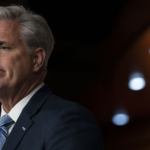
Stock markets predict more recessions than have ever occurred, but that doesn’t mean their signals are useless. And right now the global rout in equities is flashing warning signs that most economists refuse to dismiss outright.
The bearish case stems from developments in Beijing, where investors are not at all certain the government has the political will to tackle the country’s rebalancing away from exports toward domestic consumption. Absent greater demand from China, the world will look elsewhere and find Europe still clawing its way out of crisis — not shrinking but not accelerating either. And in the United States, growth is bound to slow under pressure from a weaker dollar and higher interest rates.
“I think there’s a real risk of a new global downturn,” said Simon Tilford, deputy director of the Center for European Reform in London. “What we are facing in China is not a moderation. It’s a huge adjustment. And that will have knock-on effects.”
U.S. stock prices fell steeply Friday. At one point the Dow Jones industrial average dropped more than 500 points, as oil prices plunged. The sell-off follows other sharp declines on Wall Street in recent weeks, with investors spooked by fears of a slowdown in China’s growth rate and as economists slashed fourth-quarter U.S. growth estimates.
BlackRock Chief Executive Officer Larry Fink said Friday the stock market could fall another 10 percent, and oil prices could test $25 per barrel. “We’re in the midst of a real market decline, bordering on a bear market,” he told CNBC. Stock markets are considered to have entered a bear market when their prices have fallen 20 percent and are considered to be in a correction mode if their prices have fallen 10 percent. In late afternoon trading, the broad-based S&P 500 stock index was 1,877.51, down about 11 percent from its Nov. 3, 2015, high of 2,109.79.
Still, there’s at least some room for optimism when comparing the current circumstances to previous crises, like the one in Asia in the 1990s. Central bank reserves are high, giving them leeway to prevent sudden shocks, and exchange rates are more flexible, which helps minimize pressure from speculative investors.
Credit:ibtimes.com- Carter Daugherty
















